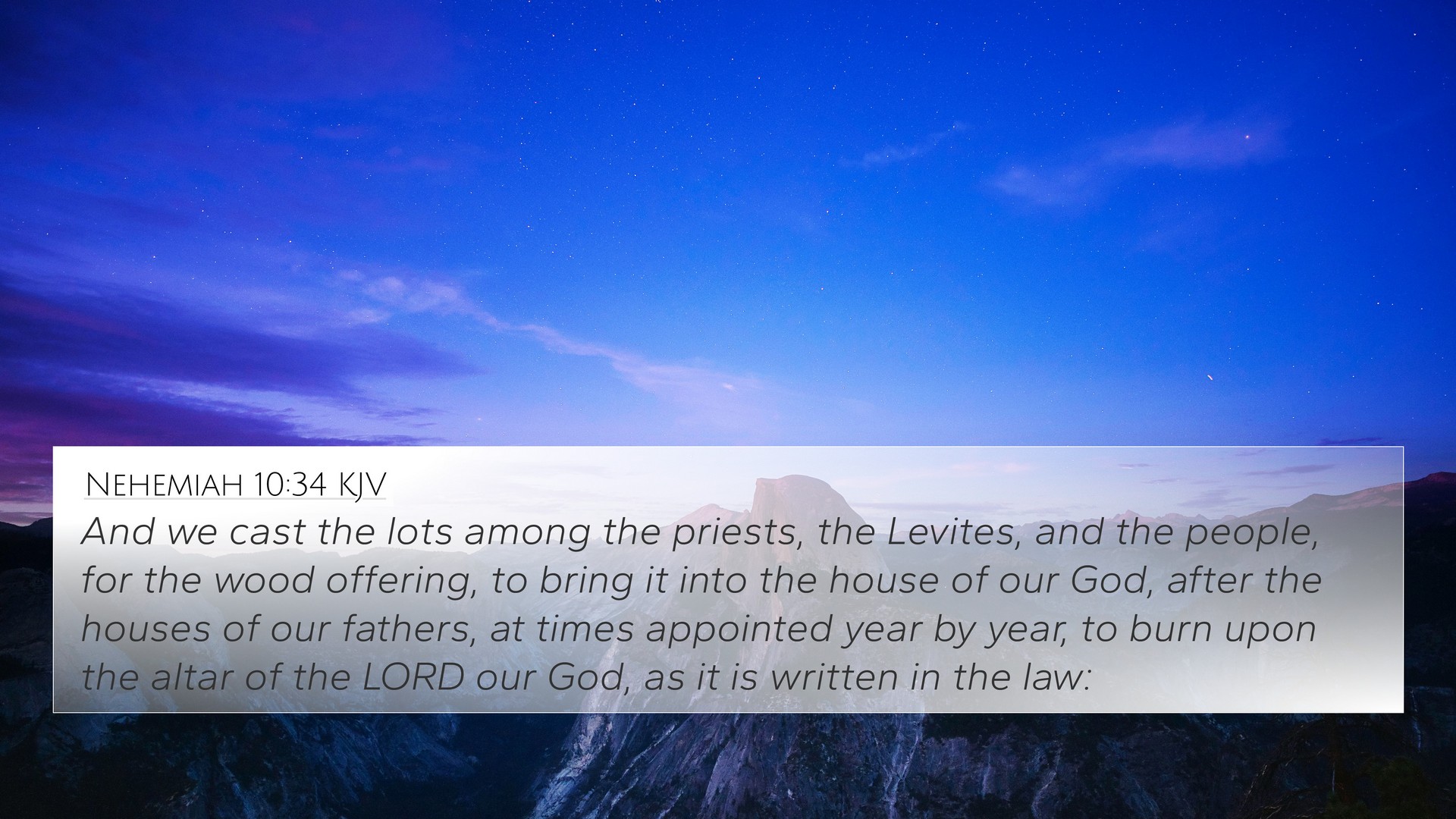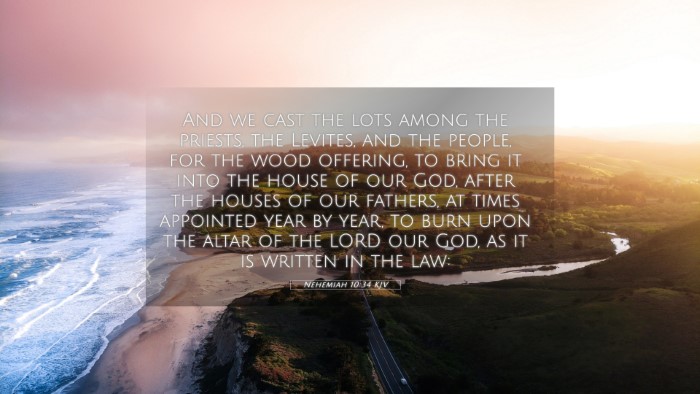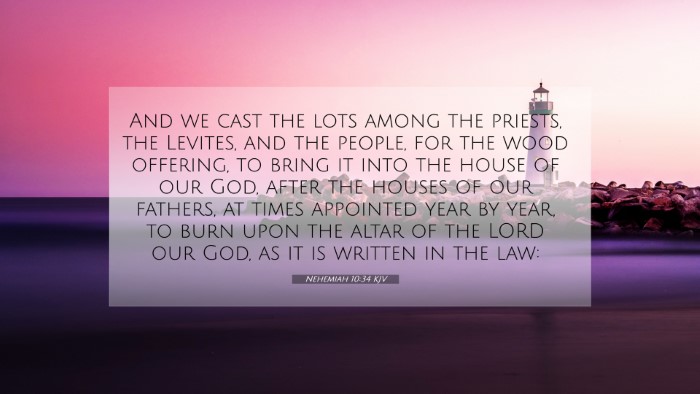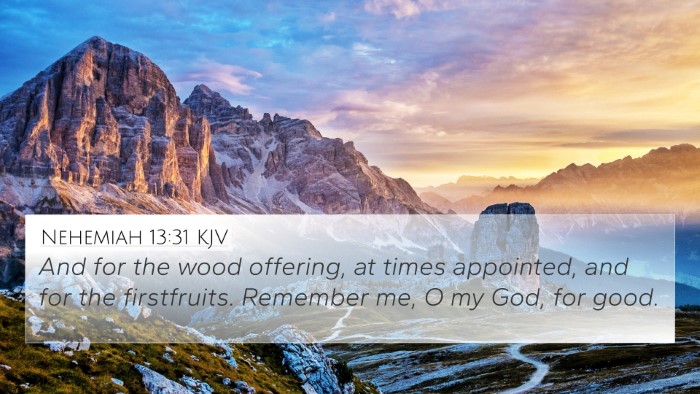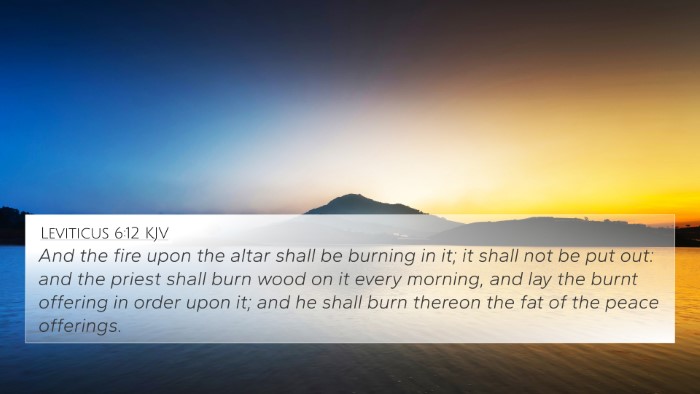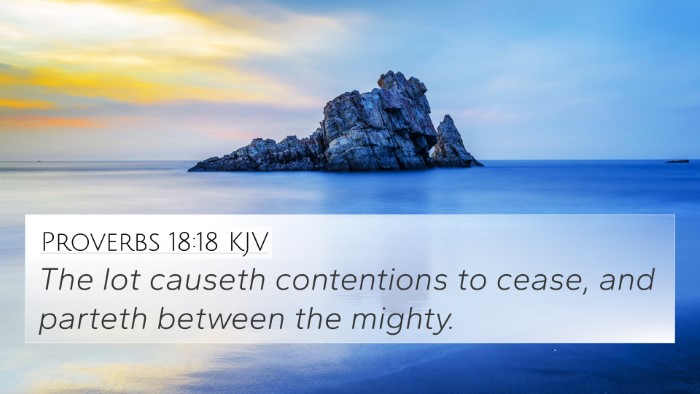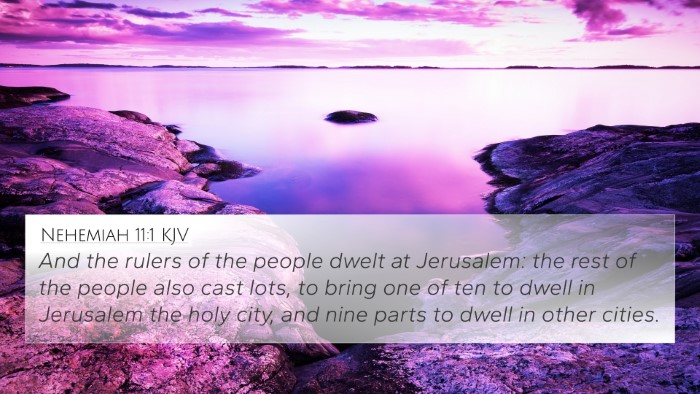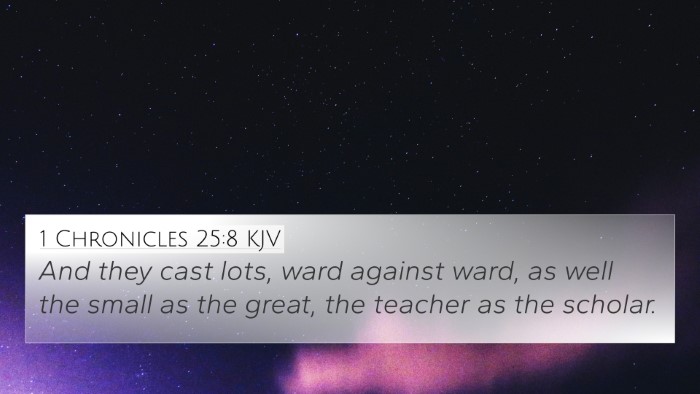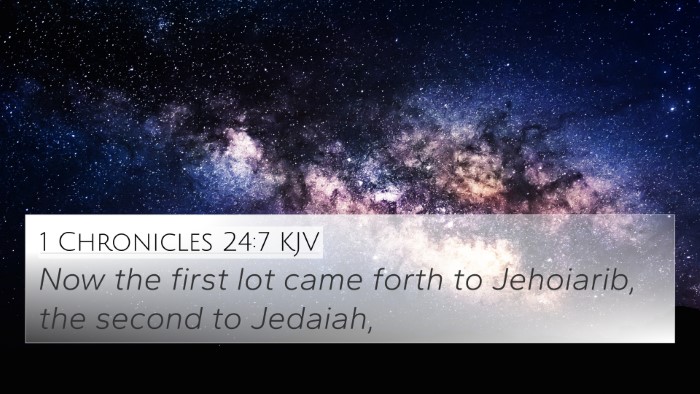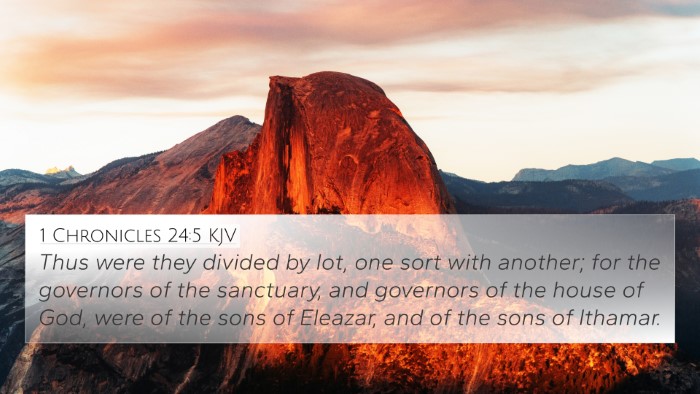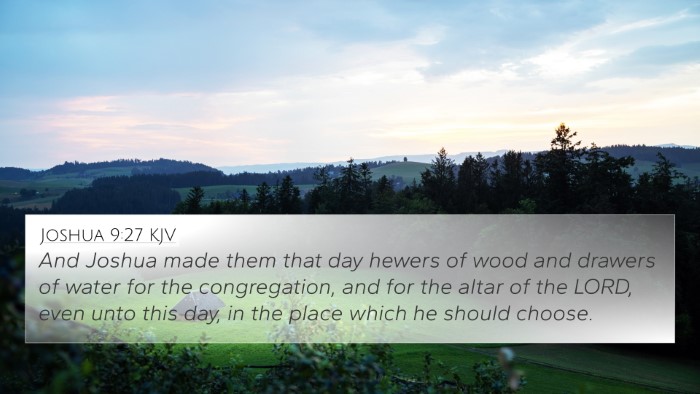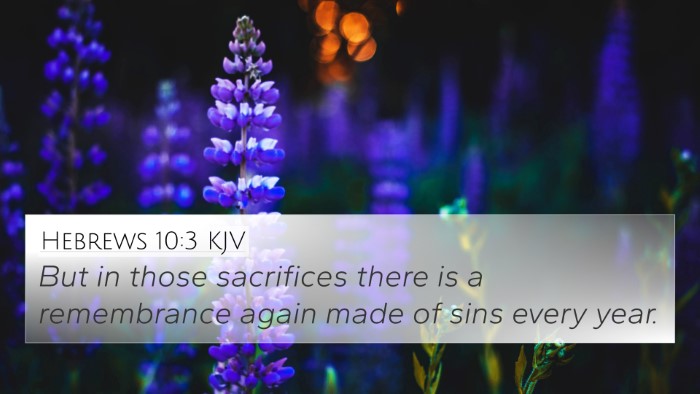Understanding Nehemiah 10:34
Nehemiah 10:34 presents a commitment made by the people of Israel regarding their responsibilities related to the temple and the service of God. This verse emphasizes the importance of participation in communal duties, particularly in ensuring that the ministry in the temple is sustained.
Verse Text
"And we cast the lots among the priests, the Levites, and the people, for the wood offering, to bring it into the house of our God, after the houses of our fathers, at times appointed year by year, to burn upon the altar of the Lord our God, as it is written in the law." (Nehemiah 10:34)
Context and Historical Background
The book of Nehemiah details the return of the Jews from Babylonian exile and their efforts to rebuild Jerusalem, including the walls and the temple. Nehemiah organizes the people to commit to certain practices that ensure that the worship and sacrificial system are upheld as prescribed by the Mosaic Law.
Key Themes and Insights
- Commitment to Worship: The casting of lots signifies a fair and communal approach to fulfilling responsibilities.
- Obedience to the Law: The reference to bringing wood for offerings reflects adherence to the commandments given in the Torah.
- Collective Responsibility: Everyone, including priests, Levites, and the general populace, plays a role in maintaining the sanctity of worship.
Bible Cross-References
- Leviticus 1:7-9: Instructions regarding offerings and sacrifices.
- Deuteronomy 16:16-17: Regarding the three pilgrimage festivals and offerings due to the Lord.
- 2 Chronicles 31:3: Hezekiah's reforms concerning the offerings.
- Nehemiah 8:12: The people's participation in joyful celebration and service.
- Ezra 3:2-3: The rebuilding of the altar and offerings being restored.
- Numbers 28:3-4: Prescriptions for daily offerings.
- Malachi 1:8: The importance of bringing offerings that are acceptable.
Comparative Analysis
The connections between Nehemiah 10:34 and other scriptures illustrate the theme of communal worship consistently established throughout the Old Testament. This emphasizes the Israelites’ collective identity rooted in their covenantal relationship with God.
Thematic Connections
This verse serves as a point of inter-Biblical dialogue, highlighting the necessity of upkeep in worship practices. It parallels teachings in the New Testament regarding communal responsibilities and offerings, as seen in:
- Acts 2:44-45: Early believers sharing their possessions.
- Matthew 5:23-24: The importance of presenting offerings in a right spirit.
Tools for Bible Cross-Referencing
To deeply engage with biblical texts like Nehemiah 10:34, one can utilize various tools and resources:
- Bible Concordance: A valuable resource for finding keywords and related verses.
- Cross-Reference Bible Study Guides: Helps in linking related scriptures.
- Study Bibles: Often include in-text cross-references that enhance understanding.
Understanding Bible Verse Connections
As you study Nehemiah 10:34, consider how this verse not only stands alone but also connects with broader biblical themes of worship, sacrifice, and community service. Using cross-referencing methods, readers gain a comprehensive understanding of the narrative and its implications for modern faith practices.
Conclusion
Nehemiah 10:34 highlights the Israelites' commitment to worship through communal responsibility, reflecting a tradition deeply ingrained in biblical history. Through effective cross-referencing of scripture, readers can uncover the rich theological significance tied to this verse and appreciate its relevance in worship today.
